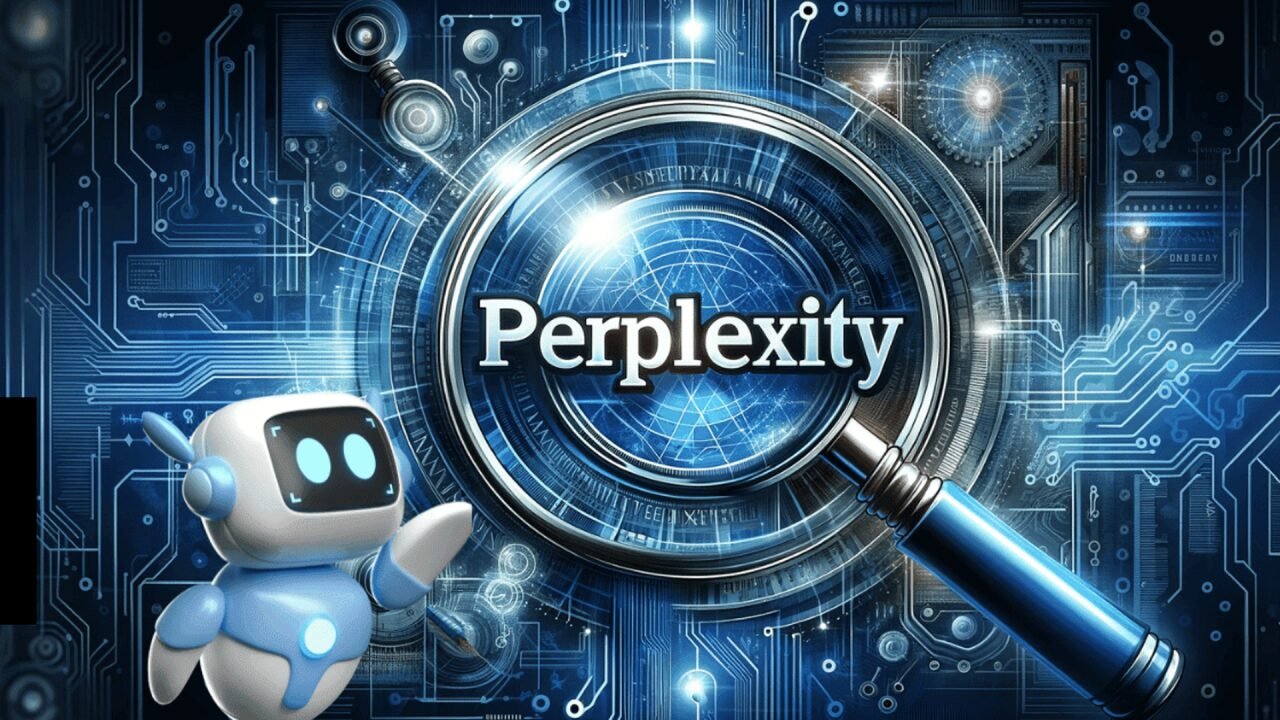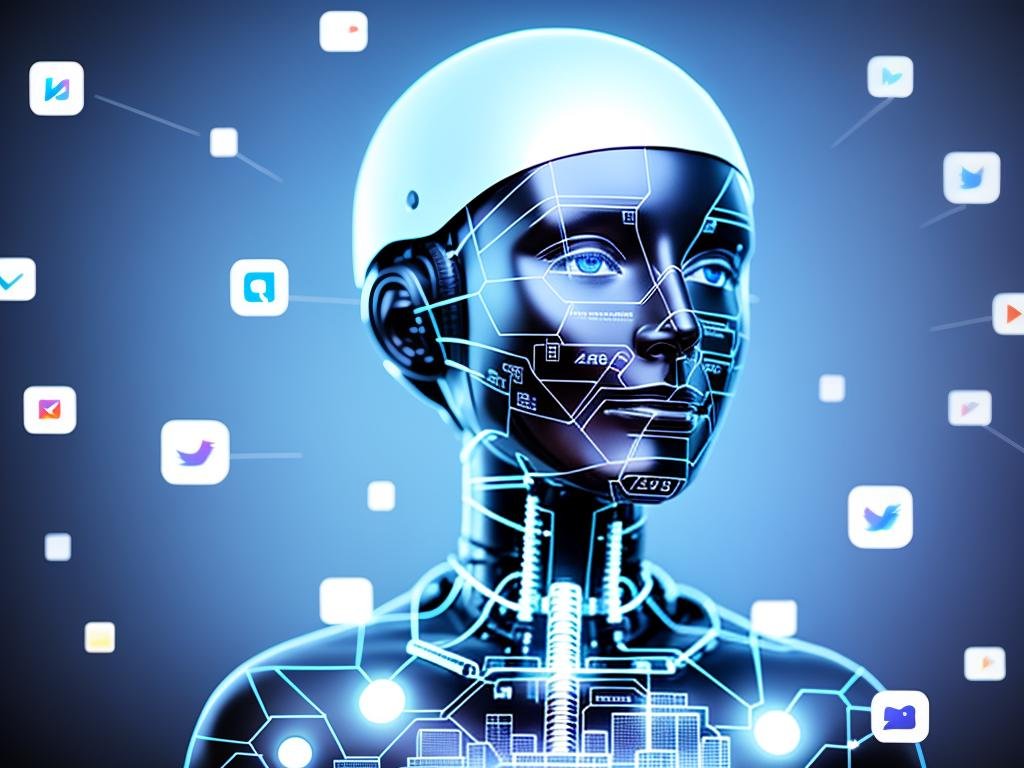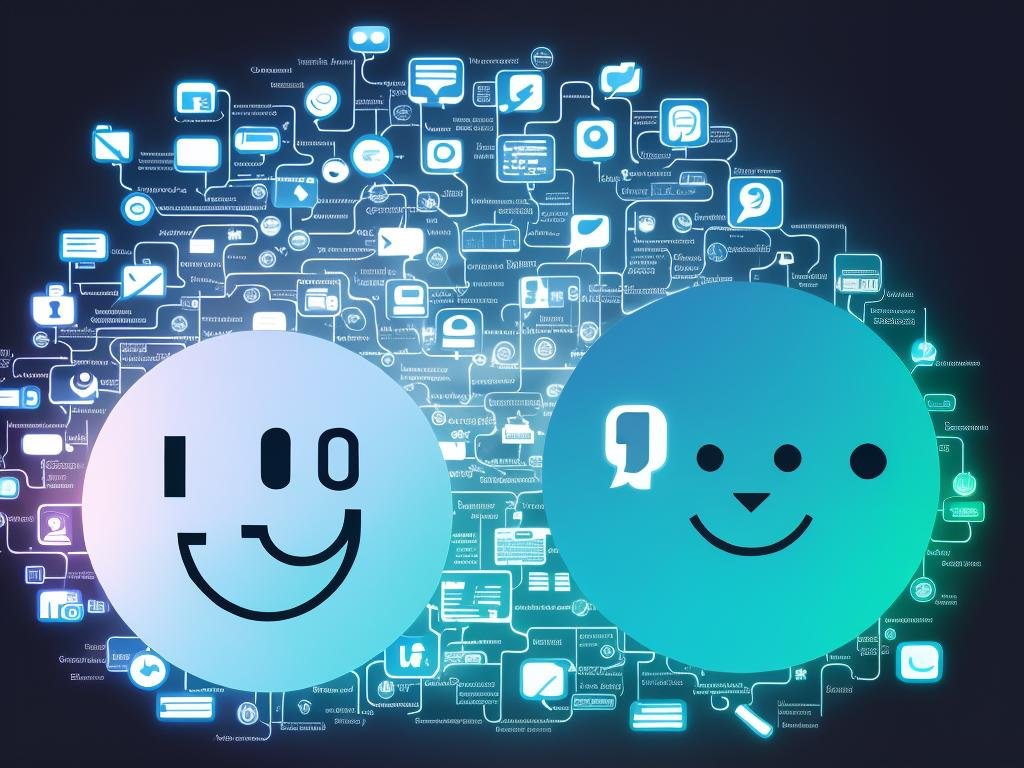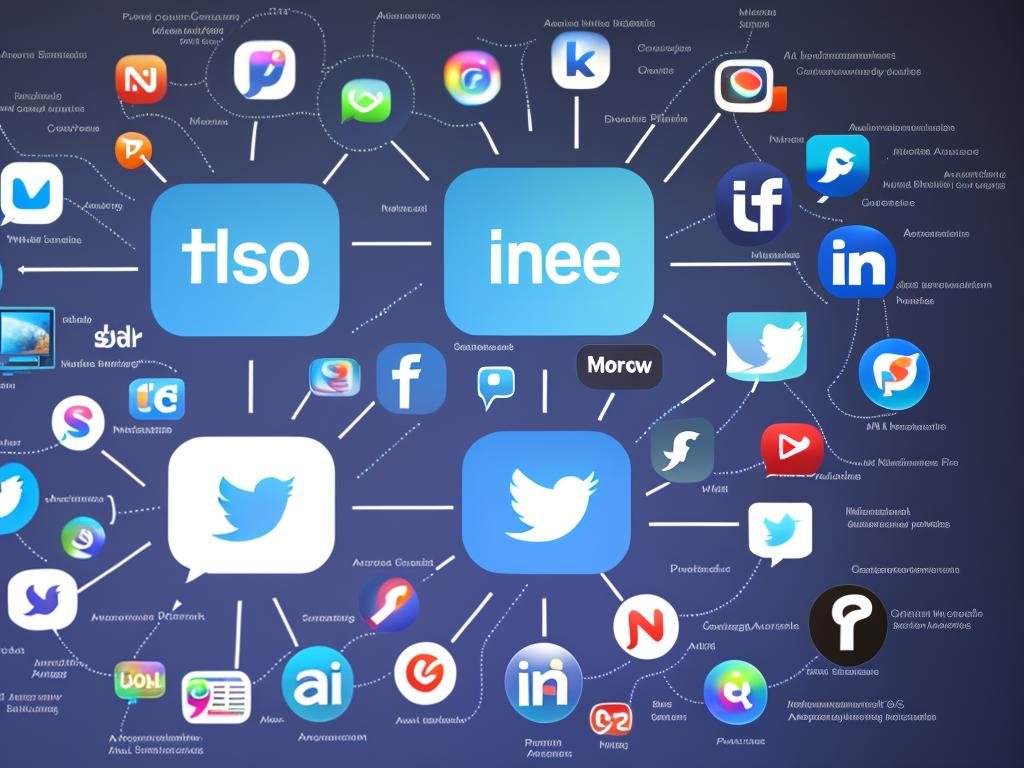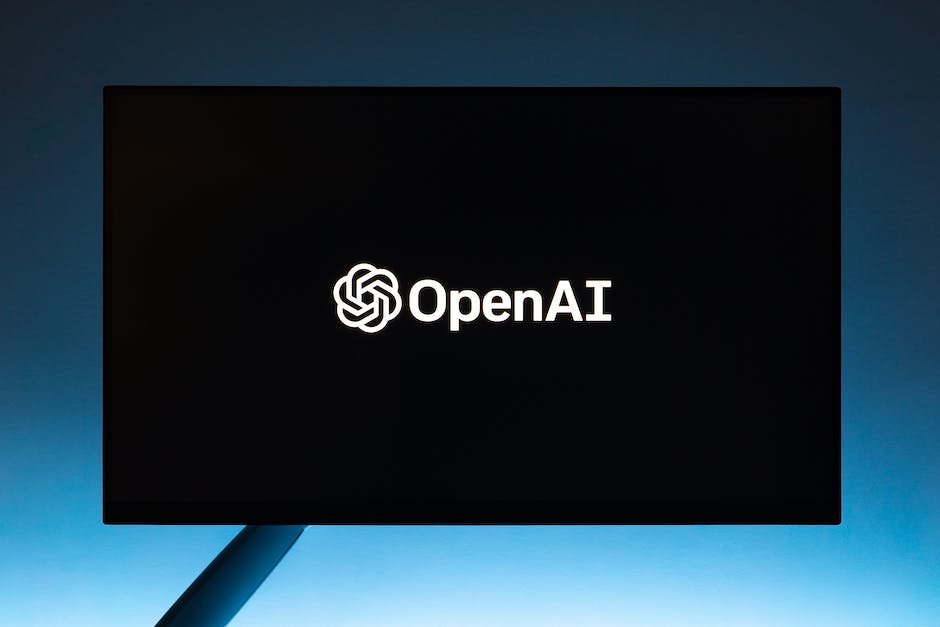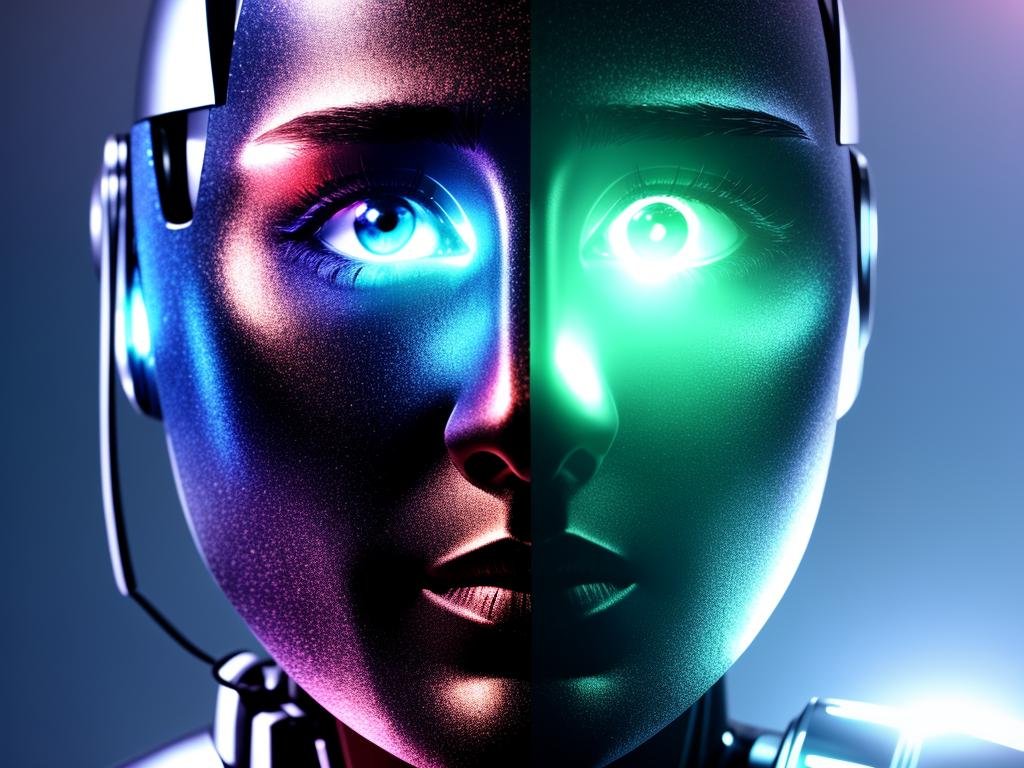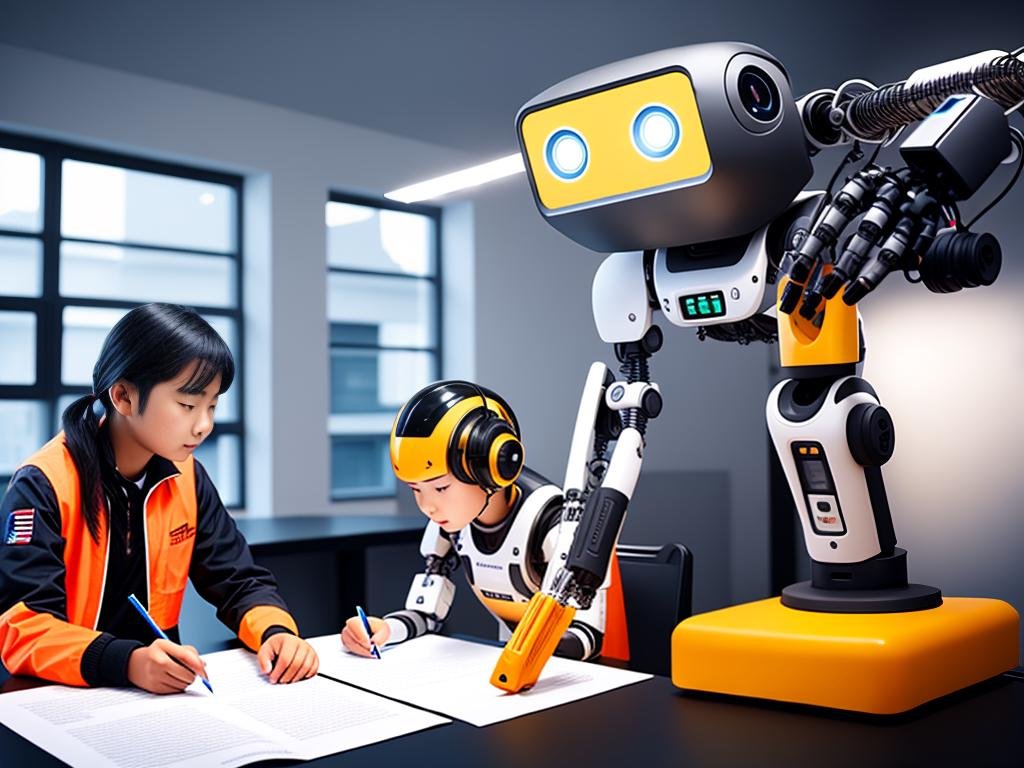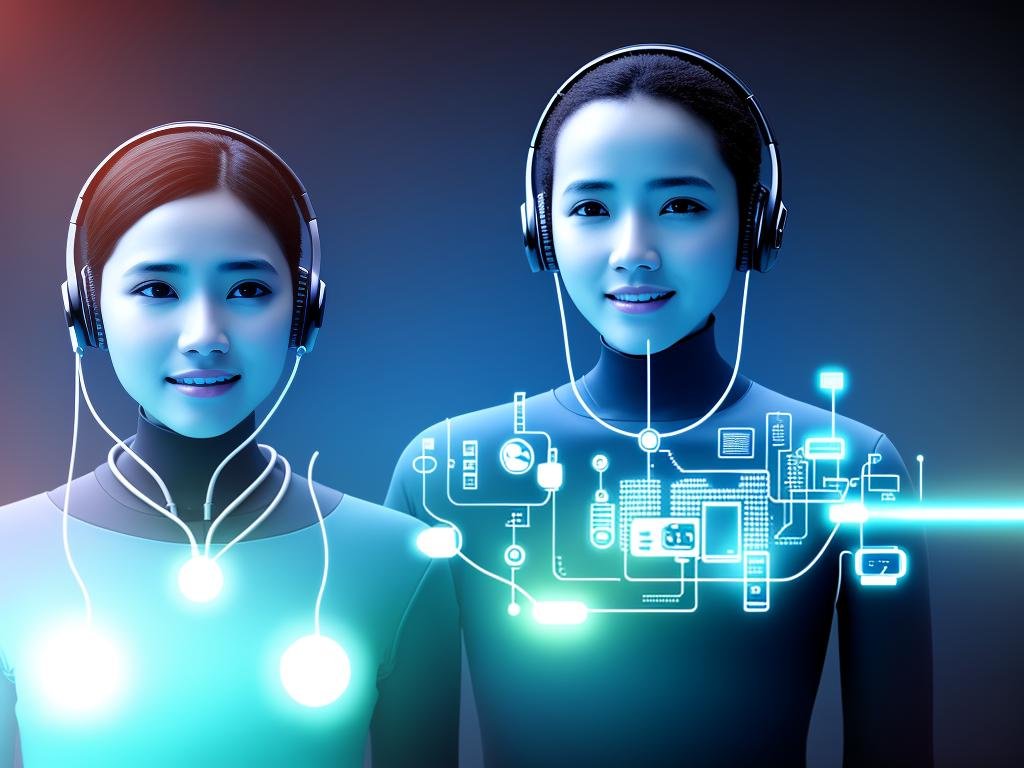In the modern digital age, Artificial Intelligence (AI) and social media have risen to prominence, independently transforming various aspects of our lives. As the worlds of AI and social media continue to collide, the impact is worth exploring. What do AI and social media entail? More so, how is AI intrinsically woven into the fabric of our social networking sites? In this exploration, we will delve into the definitions of AI and social media, the specific AI features promulgated through these platforms, and the benefits accrued by their symbiotic relationship. Inevitably, we will also discuss the concerns and challenges stemming from this integration, shedding light on issues like privacy, data accuracy, and the far-reaching implications of job replacements by AI.
Understanding AI and Social Media
Understanding Artificial Intelligence
Artificial Intelligence (AI) is a branch of computer science that focuses on creating intelligent machines capable of reacting and behaving like humans. AI-enabled systems and applications are designed to handle tasks such as speech recognition, problem-solving, planning, and machine learning. These structures have the ability to analyze details, identify patterns, and extract meaningful information from a massive amount of data.
Artificial Intelligence and Social Media
Social media has become an influential part of our daily lives. There are numerous applications like Facebook, Twitter, Instagram, and LinkedIn that engage billions of users each day worldwide. The prevalence of AI in social media increases as it offers tools to analyze vast amounts of data and automate processes.
AI technology has allowed social media platforms to personalize user experiences by understanding their preferences, behavior, interactions, and activities conducted on the platforms. For example, Facebook uses AI and machine learning to filter out spammy or inappropriate content before it’s reported and to suggest friends, groups, or pages based on users’ activities and preferences. Instagram utilizes AI to identify and filter out bullying or offensive comments.
Increasing Prevalence of AI in Social Media
Due to the vast amount of data generated on social media platforms daily, it’s difficult for companies to analyze and make sense of it without advanced technology. AI has become an essential part of social media because it helps companies understand user behavior, enhance user experience, and promote better audience engagement.
AI in social media also assists in user segmentation, ad targeting, sales forecasting, and customer services. Chatbots, for instance, are a potent AI tool used by businesses on social media platforms to provide instant customer service, reducing response time and improving customer satisfaction.
AI technology also plays a massive role in social media analytics. It helps businesses understand their audience better, track their social media performance, gain insights from competitors, and make informed decisions.
Without a shred of doubt, the landscape of social media interaction and business transactions has been extensively revolutionized by AI or Artificial Intelligence. As we look towards the future, it is clear that social media platforms will continue to incorporate more advanced AI technologies. This continuous evolution of AI will enhance user experience, foster the growth of businesses, and improve customer satisfaction rates.
AI features in Social Media
Unraveling AI’s Contributions to Social Media
Artificial Intelligence, commonly known as AI, has cemented an indispensable role in today’s digitized world, particularly in the vibrant sphere of social media. Many of the incredible features we encounter daily on these platforms are fruits of the advanced AI technologies working behind the scenes. Such features range from chatbots, personalized algorithms, and data analysis, to tailored recommendations that cater to individual preferences.
Chatbots
Chatbots are the most visible AI application on social media platforms. These are automated bots designed to simulate intelligent conversations with users. They are often employed by businesses on social media platforms such as Facebook to handle customer service inquiries, send automated messages, and guide users through various processes. The AI component of chatbots allows them to interpret typed or spoken language, respond in kind, and learn from these interactions to improve future conversations.
Algorithms
Another critical AI feature utilized in social media is algorithms. Custom algorithms curate the content we see on our feeds based on our online behavior, likes, shares, comments, and the amount of time we spend on particular posts. By analyzing these patterns, AI can predict what content will be most appealing to individual users. For instance, Instagram’s algorithm monitors the types of photos and accounts a user interacts with the most and uses these patterns to personalize the content presented.
Data Analysis
AI also excels in data analysis, extracting valuable insights from large volumes of data. Social media platforms are data-rich environments, and the ability to analyze and interpret this data effectively can lead to more engaging and targeted content. This data-driven approach allows platforms like Twitter or Pinterest to provide users with more relevant content, thus improving the user experience and platform engagement. For instance, if a user often interacts with content related to cooking, AI-powered data analysis might suggest more cooking-related profiles, posts, or ads.
Personalized Recommendations
Personalized recommendations are another significant AI feature in social media. This feature provides users with suggestions for new accounts to follow, products to purchase, or events to attend based on their previous interactions. For instance, Spotify’s Discover Weekly playlist, a hugely popular feature, relies on AI to analyze individual listening habits and recommend new songs and artists based on those preferences.
Many social media platforms, ranging from LinkedIn and its job recommendations to YouTube and its video suggestions, rely heavily on AI to tailor their user experiences. This application of AI has significantly improved user engagement and has become ubiquitous in social media platforms today.
Summarily, Artificial Intelligence, or AI, plays an integral role on social media platforms by providing interactive chatbots, customised algorithms, data interpretation and personalised recommendations. These AI features each bring something unique to the table, but when combined, they create a vibrant, inviting and tailored social media experience, leading users to frequently visit the platforms.
Benefits of AI in Social Media
AI’s Contributions to Social Media
Artificial Intelligence (AI) has revolutionized the social media arena by enhancing its effectiveness in numerous areas. These include improved customer interactions, identification and removal of fake news, engagement of users with bespoke content, and deciphering complex behaviour patterns. AI’s assistance has permitted social media platforms to automate routine tasks, expand operations, and comprehend user behaviour with heightened precision. This has led to an increase in user engagement and an overall growth of these platforms.
Efficient Customer Service through Chatbots
A rapidly-growing application of AI in social media is the use of chatbots for customer service. These AI-driven virtual assistants automate customer interactions by providing instant responses to queries, thereby speeding up resolution times and enhancing user experience. For businesses, chatbots are a cost-effective solution that ensures customer inquiries are attended to around the clock. They are capable of handling a multitude of inquiries simultaneously and can be programmed to give accurate and consistent responses.
Pattern Recognition
AI’s ability to identify patterns and draw inferences from vast amounts of data is another benefit that has revolutionized social media. This feature, often referred to as machine learning, allows social media to know its users intimately. With this understanding, AI can predict user behavior, such as what type of content is more likely to interest a particular user, when users are most likely to be active, and which users are likely to interact. By capitalizing on these insights, social media platforms can personalize the user experience, making it more engaging and efficient.
Fake News Detection
Inaccurate or misleading information, generally referred to as ‘fake news’, is a significant issue that has spread across social media platforms. However, AI technologies are showing promise in combating this challenge. With the ability to analyze text and image content, AI can help to identify misleading or false information. It accomplishes this by comparing the content with trusted sources or checking it against known fake news patterns. This AI application provides a proactive approach to ensuring the credibility and reliability of content that users consume on these platforms.
User Engagement through Personalized Content
Personalization is a crucial feature that AI brings to social media. It uses machine learning algorithms to analyze past user behavior, interactions, and preferences to curate a personalized news feed. This means users are more likely to see content they are interested in, which in turn increases their engagement on the platform. Furthermore, personalization is not only limited to content, as AI can also personalize ads, ensuring that users only see advertisements relevant to them, which improves ad engagement rates and revenues for businesses.
Artificial Intelligence, often referred to as AI, continues to revolutionize how we interact with social media platforms. It delivers an enhanced user experience, automates quick responses, personalizes content based on individual preferences, and amplifies the overall capabilities of these platforms. AI is swiftly evolving social media into a potent resource for both businesses and users, making it more streamlined and trustworthy.

Concerns and Challenges with AI in Social Media
However, as AI becomes increasingly ingrained in social media platforms, it also brings along several challenges and concerns. Privacy, consistency in data accuracy, and the potential replacement of human jobs by automated processes are among the top issues that are prompting serious discussions and scrutiny. While AI has significantly facilitated the growth and effectiveness of social media, it’s also imperative to address and mitigate these potential issues.
In the bid to provide personalized experiences for users, social media platforms use AI to analyze an individual’s online behavior and personal information. However, this has raised privacy concerns as users often express discomfort about how much these platforms know about them.
AI collects and interprets data from almost every interaction on social media platforms, ranging from likes, comments, and shares to clicks and time spent viewing posts. Combining these data points, AI can create a detailed user profile that includes age, location, personal interests, and sometimes even unexpressed life traits.
While this information aids in the delivery of a personalized online experience, it carries a danger of misuse. There are concerns about third-party access to this data, either through data selling practices or data breaches, leading to potential privacy violations.
AI algorithms depend on the data fed into them for prediction and decision making. If this input is inaccurate or biased, the output will also reflect these inaccuracies. This issue presents a serious problem when the AI system makes significant determinations, such as recommended posts or advertisements.
Inaccurate or biased source data can result in inappropriate or offensive content recommendations. These might not only be irrelevant to the user but may also reinforce harmful stereotypes and spread misinformation.
Efforts are being made to improve data quality and reduce bias, but the challenge still persists. It requires constant monitoring and iteration on AI systems to ensure that they function responsibly and constructively.
Automated processes powered by AI are replacing many human jobs across several industries, including social media. AI is used for tasks such as content moderation and customer service. With ongoing improvements in AI capabilities, more jobs in strategy and content creation may be at risk.
While AI can significantly increase efficiency and reduce costs, the human touch and creative intuition cannot be entirely replicated. The issue of job replacement by AI raises both economic and ethical concerns. It calls into question the balance between technological progress and human livelihood, a challenge that society must face.
The usage of AI in social media undeniably presents significant rewards, but these cannot be pursued without addressing associated concerns. The potential implications on privacy, data accuracy, and the displacement of human jobs necessitate a responsible approach to AI integration and use in social media platforms.
As our exploration shows, the fusion of AI and social media is a double-edged sword, offering profound benefits but coming with its unique set of challenges. The benefits are manifest in efficient customer service, insightful pattern recognition, tackling fake news, and fostering user engagement. However, we also need to navigate the fraught terrain of privacy concerns, data accuracy, and the potential displacement of human jobs through automation. Society is tasked with the complex mission of harnessing the benefits of AI in social media strategically and responsibly while mitigating its adverse impacts — a mission that requires a comprehensive grasp of AI, its mechanisms, and implications in the realm of social media.


